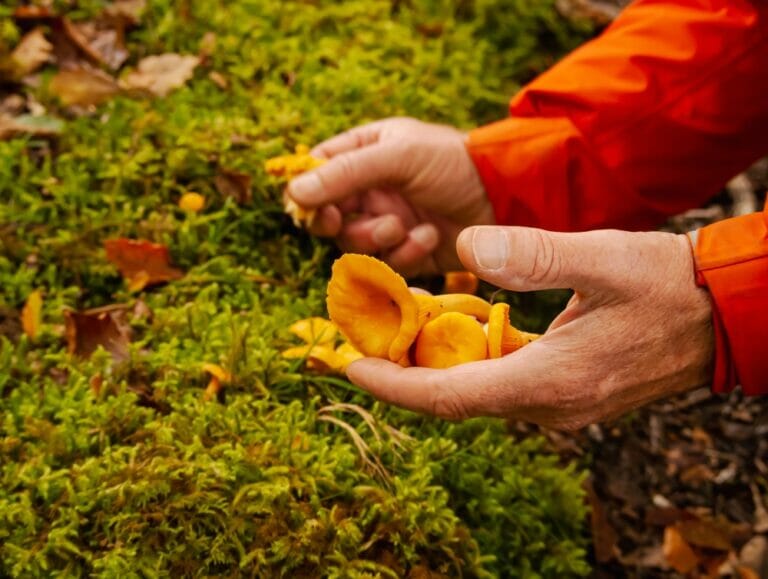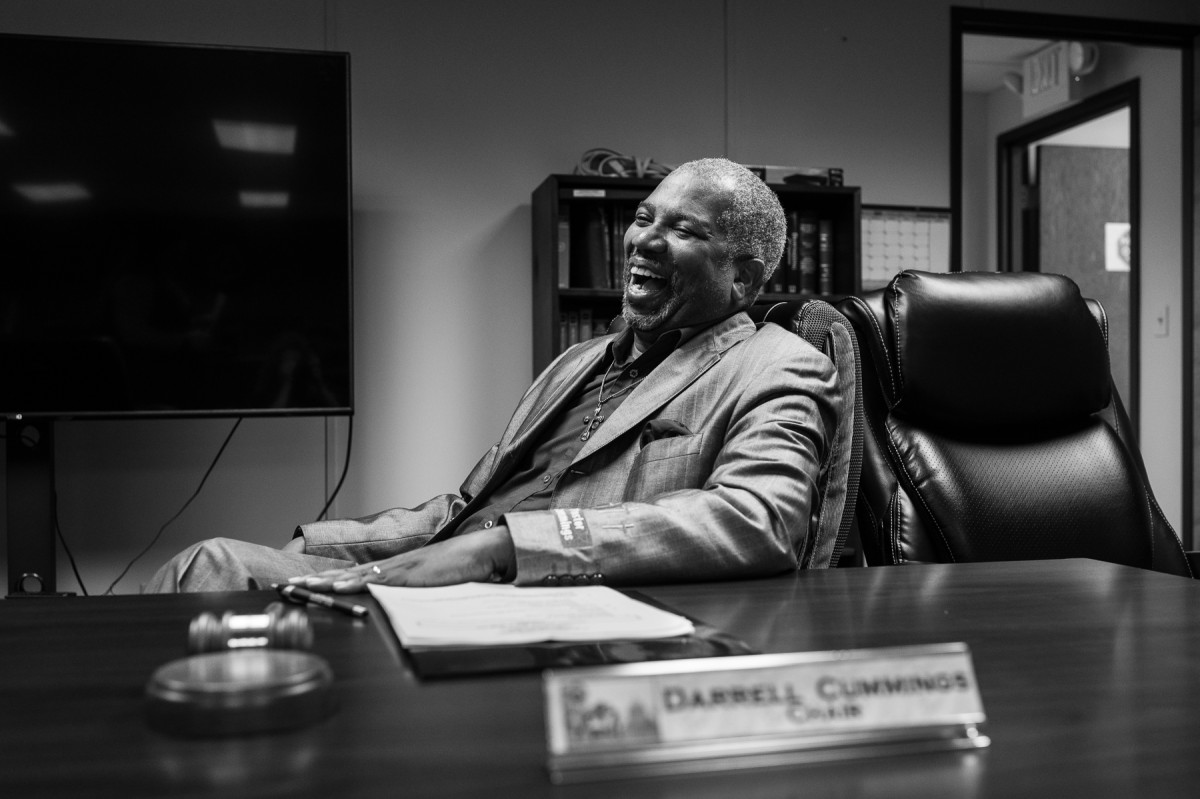Published in August of this year, “English Lit” is Bernard Clay’s autobiographical poetry debut – one that took decades to complete.
“A lot of the poems I started writing when I first started writing poetry back in high school,” Clay said. “So a lot of these poems are like time capsules, so to speak. They’re better remnants of a life I lived, a different Bernard.”
“But I wrote all these poems as a way to cope with the trauma of growing up in the society I was growing up in, which affected me in a certain way.”
Clay grew up in the west end of Louisville, Kentucky, near now demolished housing projects, but says later in life, after finding the Affrilachian poets collective founded by Frank X. Walker, made the bridge between his urban upbringing and his Appalachian identity, which both exist is his writing today.
Clay spoke with Kendra Winchester of @ReadAppalachia, an Instagram account dedicated to Appalachian literature and poetry, about his newest collection and how his acceptance of his Appalachian identity changed his writing. You can watch the full interview on Instagram here.
This interview has been lightly edited for length and clarity.
Kendra Winchester: I love your book, Bernard, so much. Crystal Wilkinson recommended it to me when I interviewed her for my podcast Reading Women. So I went and I bought it, like you do when Crystal Wilkinson recommends a book, and it’s just fabulous. What has it been like for you putting this full length collection out into the world?
Bernard Clay: Um, it’s been a journey, I would say probably a 20-plus year journey.
At first, I started writing for a class in high school, but then they sort of graduated into more writing for myself when I went to college, later into grad school and joined a group of Appalachian poets. But I would sort of go in flourishes and add them with ebbs and flows. And all of them are sort of about similar themes, but they’re all written at different times in my life so you get that sort of perspective of somebody growing up.
That’s how we sort of framed it was this is a progression through this the speaker’s life, and so it wasn’t intentional, it was sort of a thing that we sort of compiled after the fact, but it was something I’ve written on for many, many years, and then we just decided to sort of hone it down into this collection.
KW: What was it like going back and visiting an old Bernard, as it were, reading his poetry? Were you tempted to edit what you had written?
BC: Yes, it was very hard, especially because I’m a person that likes to revise a lot. My editor helped temper that a lot, which was a good thing because I probably would have redid a whole lot of forms and they would all sound probably uniform.
He sort of seems like a different person. In some pieces, the people don’t seem to be the same speaker. So it was fun, but it’s weird because you’re sort of going through these different versions of yourself, and you don’t want to taint that. So we sort of left it the same. We tried our best not to edit it too much.
KW: You’re a part of the Affrillachian poets collective, and I heard that’s invitation only group to join. So what was that like receiving that invitation?
BC: Well, I age myself a little bit, and possibly the Affrilachians as well because when I joined, they were at their core membership level – it was the founders basically. And they were all pretty much still in school. Maybe one was just newly a professor, but they weren’t that much older than me, there was maybe 10 years between us.
So when I met them, they just had a presence about them, but they were also very accessible for me. It was like joining a long lost family when they invited me because when I heard their poems, their poems touched me in a way that was like, ‘Oh, these, these are people that know what I’ve been talking about all this time.’
It was a little bit intimidating, but for me, because I got in so early, before the book deals, before people were professors, it was a little more accessible. And they took me under their wings. I could write stories in the workshops. That time was like my freshman and sophomore year of college, and those were some of the most formative years for writing for me. I learned so much there. So it was one of the greatest, most impactful things to happen in my life.
It just was so rough of a time back then. We take for granted how accepted expression is now because of the internet, but back then, there was no internet. So the only way you could really do stuff was through the major venues like publishing houses and things like that. They were making a name for themselves in other ways, and it was pretty impressive.
KW: One of the things I loved about your poetry collections, you talked about being urban and urban Appalachian and what that means for you. And it’s just like a different type of connection with Appalachia, because I think most people instinctively think country when they think Appalachia. I think you live in a more rural location now. What was your experience moving in between those two spaces?
BC: Frank X. Walker, the founder of the Affrilachian poets, acted as a sort of bridge between me and accepting the idea that I was from Appalachia. It was hard to get my head around it as a young person, because I was like, ‘Oh, no, I’m not rural. I’m not country.’ And you don’t really see it coming into my work until maybe I’m halfway through college.
I was beginning to see my home state of Kentucky more and see pockets of little inner city areas in Danville and Lexington and all these little small towns. They look very similar to the west end of Louisville, where I grew up, so I was able to draw that connection.
Frank writes from the perspective of Appalachia, so I thought, ‘Why don’t I take the perspective of somebody who lives in a city, but appreciates the nature of Appalachia, and wants to explore it, and is not ashamed of it.’ It wasn’t hard for me because I grew up with grandparents that basically were urban farmers before it was cool, and I learned a lot of these things about being country growing up, and they were natural for me. So when Frank would tell me stories about his life growing up, I’ll be like, ‘Oh, yeah, I had the same experience,’ which was an abnormal experience for somebody living in Louisville, but it helped me to bridge that gap.
The way I write my poems, I try to be very accessible because I’m trying to express what I’m trying to get across. I write for most people, but specifically Black people. I want them to accept this idea that nature is a part of us, and we should accept it. I see tendencies to sort of be really afraid of nature and a lot of that has to do with systemic racism. I felt like I was obligated to write about this, and now that I live in the country, or in Eastern Kentucky, I’m sort of seeing the other side of the fence. What is life like in the deep rural area?
I hear just probably more gunshots out here than I heard anytime in the West End. I mean, the same derogation that was happening in Black urban neighborhoods is happening out here in these rural areas. And so it’s illuminating to me to sort of see like, ‘Oh, I was thinking that the grass was greener on this other side,’ when in reality, we’re all sort of in this together.
Kendra Winchester is the creator of the Instagram account @ReadAppalachia and the co-founder of the Reading Women podcast. She was also the host of 100 Days in Appalachia’s November Creators and Innovators newsletter series, which you can sign up for here.



